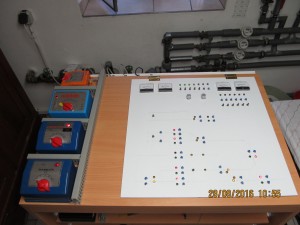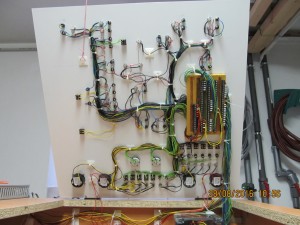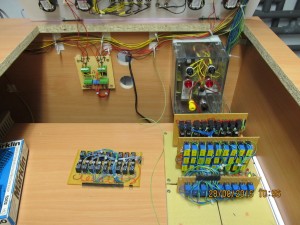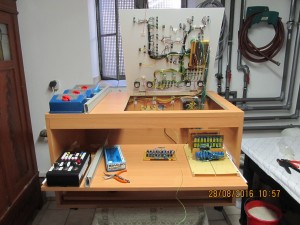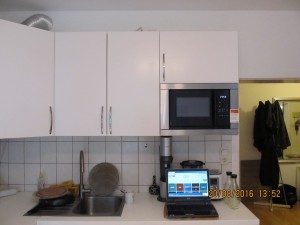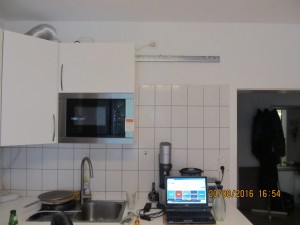Code snipped to get detailed information about memory usage
mallocinfo.f95.zip
Related: Code snipped to read /proc status with fortran.
module MallocInfo_m
use :: iso_c_binding
implicit none
!> This structure type is used to return information about the dynamic memory allocator.
type, bind(c) :: MallInfo_t
!> This is the total size of memory allocated with sbrk by malloc, in bytes.
integer(c_int) :: arena
!> This is the number of chunks not in use. (The memory allocator internally gets chunks of memory from the operating system, and then carves them up to satisfy individual malloc requests; see Efficiency and Malloc.)
integer(c_int) :: ordblks
!> This field is unused.
integer(c_int) :: smblks
!> This is the total number of chunks allocated with mmap.
integer(c_int) :: hblks
!> This is the total size of memory allocated with mmap, in bytes.
integer(c_int) :: hblkhd
!> This field is unused.
integer(c_int) :: usmblks
!> This field is unused.
integer(c_int) :: fsmblks
!> This is the total size of memory occupied by chunks handed out by malloc.
integer(c_int) :: uordblks
!> This is the total size of memory occupied by free (not in use) chunks.
integer(c_int) :: fordblks
!> This is the size of the top-most releasable chunk that normally borders the end of the heap (i.e., the high end of the virtual address space’s data segment).
integer(c_int) :: keepcost
end type
interface
function mallinfo() bind(c, name="mallinfo") result(data)
use :: iso_c_binding
implicit none
type, bind(c) :: MallInfo_t
integer(c_int) :: arena
integer(c_int) :: ordblks
integer(c_int) :: smblks
integer(c_int) :: hblks
integer(c_int) :: hblkhd
integer(c_int) :: usmblks
integer(c_int) :: fsmblks
integer(c_int) :: uordblks
integer(c_int) :: fordblks
integer(c_int) :: keepcost
end type
type(MallInfo_t) :: data
end function
end interface
contains
subroutine getMallocInfo(malinfo)
implicit none
type(MallInfo_t), intent(out) :: malinfo
malinfo = mallinfo()
end subroutine
subroutine printMallInfo(malinfo)
implicit none
type(MallInfo_t), intent(in) :: malinfo
write(*,*) "Total size of memory allocated with sbrk by malloc in byte. ", malinfo%arena
write(*,*) "Total size of memory allocated with mmap, in bytes. ", malinfo%hblkhd
write(*,*) "Total size of memory occupied by chunks handed out by malloc.", malinfo%uordblks
write(*,*) "Total number of chunks allocated with mmap. ", malinfo%hblks
write(*,*) "Number of chunks not in use. ", malinfo%ordblks
write(*,*) "Total size of memory occupied by free (not in use) chunks. ", malinfo%fordblks
write(*,*) "Size of the top-most releasable chunk borders end of the heap", malinfo%keepcost
end subroutine
end module
program test
use MallocInfo_m
implicit none
type(MallInfo_t) :: mallinfos(10000)
integer :: i, nInfos
integer, allocatable :: data(:)
allocate(data(0))
nInfos = 0
do i=1, 10
write(*,*) "Iteration",i
deallocate(data)
allocate(data(i*100000))
nInfos = nInfos+1
call getMallocInfo(mallinfos(nInfos))
call printMallInfo(mallInfos(nInfos))
call sleep(1)
end do
do i=10, 1, -1
write(*,*) "Iteration",i
deallocate(data)
allocate(data(i*100000))
nInfos = nInfos+1
call getMallocInfo(mallinfos(nInfos))
call printMallInfo(mallInfos(nInfos))
call sleep(1)
end do
write(*,*) "Total size of memory allocated with sbrk. min, mean, max", minval(mallinfos(1:nInfos)%arena), sum(mallinfos(1:nInfos)%arena)/nInfos, maxval(mallinfos(1:nInfos)%arena)
end program
./a.out
Iteration 1
Total size of memory allocated with sbrk by malloc in byte. 135168
Total size of memory allocated with mmap, in bytes. 401408
Total size of memory occupied by chunks handed out by malloc. 7080
Total number of chunks allocated with mmap. 1
Number of chunks not in use. 1
Total size of memory occupied by free (not in use) chunks. 128088
Size of the top-most releasable chunk borders end of the heap 128088
Iteration 2
Total size of memory allocated with sbrk by malloc in byte. 135168
Total size of memory allocated with mmap, in bytes. 802816
Total size of memory occupied by chunks handed out by malloc. 7080
Total number of chunks allocated with mmap. 1
Number of chunks not in use. 1
Total size of memory occupied by free (not in use) chunks. 128088
Size of the top-most releasable chunk borders end of the heap 128088
.
.
.
Total size of memory allocated with sbrk. min, mean, max 135168 155443 540672
